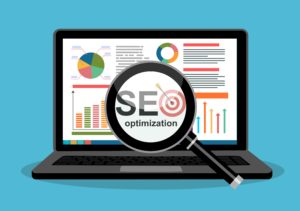
There’s no denying the fact that the internet has changed the way businesses reach their customers. Budgets that were once allocated to print advertisements have largely been retargeted toward digital marketing efforts.
For businesses just starting to explore the opportunities that internet marketing offers, the difference between social media and digital marketing can be confusing. How are they different? Where should the focus be?
Here’s everything you need to know about digital marketing versus social media and how to apply them both to your business.
What is Digital Marketing?
In simplest terms, digital marketing is the process of using various digital channels to reach customers and create a connection that elicits sales. It could include SEO, online advertising, email marketing, and yes, social media.
Digital marketing sometimes reaches beyond the internet as well; SMS campaigns are an example of non-internet digital marketing.
What is Social Media Marketing?
Social media marketing is a subset of digital marketing. With this approach, businesses use various social media platforms to reach their customers. Which channels are chosen largely depends on the goals and demographics of the company.
For example, many blogs-turned-business have great success with Pinterest. Pinterest reaches up to 83% of US women aged 25-54. That’s a significant opportunity for businesses that target this demographic. YouTube tutorials, Facebook groups, and Instagram stories have created a sub-economy in their own right; the rise of influencers and entrepreneurs has changed the face of the world.
Social media also plays a vital role in connecting with customers. Brands with a social media presence are viewed as more “human” than those without one. With shrinking attention spans and thinning patience, customers appreciate the idea of being able to reach out to a social media page and get a quick response.

What’s the Difference Between Digital Marketing and Social Media?
Here’s where things get confusing for people: if social media is a form of digital marketing, what’s the difference?
While both fit into your overall marketing strategy, social media is such a robust and integral focal point for marketing efforts that it’s really a category of its own. Rather than picturing social media under the digital marketing umbrella, think of it as a Venn diagram with substantial overlap.
There are many key differences between social media marketing and other digital marketing efforts. Here are a few overarching variances to consider.
Speed of Setup and Success
While a social media following doesn’t appear overnight, social media is relatively quick to grow and cultivate. Other digital marketing efforts, such as SEO, are more for the long game.
One of the reasons behind this difference is that social media is straightforward and visual. While there should be planning and strategy behind building a social media following, the content is easier to curate. With the focus on visual stimuli, there’s less concern about copywriting and keyword focus.
Furthermore, social media has an ecosystem that promotes sharing. While you might tag your friend in a Facebook post that’s relevant to them, you’re far less likely to forward a marketing email.
For digital marketing efforts, it takes time for Google to determine that your content is relevant and give you a first-page ranking. It takes time to create an email marketing funnel that converts. That being said, these efforts are more likely to make a lasting impression whereas a quick share on social media is there and then gone.
Business Goals
Social media and digital marketing share one fundamental goal: make sales and boost revenue. However, the roads there are vastly different. The main focus behind a social media strategy is customer engagement and awareness building. With other digital marketing efforts, the focus is mainly improving reach.
Social media plays a powerful role in both the awareness and retention stages of the customer lifecycle. Brands build trust by answering questions about their offering in a public forum, as well as addressing any complaints that arise. As savvy consumers become more aware of being sold to, they trust authenticity, transparency, and customer reviews above all else.
Reach and Limitations
While the reach potential on social media cannot be understated, your efforts will be limited by the boundaries of these platforms. The efforts you make on Pinterest versus your campaigns on Facebook may never overlap. The images and graphics that garner so much attention on Instagram may never show up in a Google search.
Conversely, digital marketing has no boundaries. It can reach not only beyond social media but beyond the internet. Whereas social media targets a very public platform, email marketing and SMS have the ability to get very personal.
How are Digital Marketing and Social Media Similar?
In many ways, digital marketing and social media are two sides of the same coin. Whether you view social media as a subset of digital marketing or a silo of its own, one fact remains the same: using social media can impact your digital marketing growth. Here are some of the overlapping areas between the two focal points.
Improving SEO
Having social media doesn’t directly impact SEO. However, the efforts made there can drive traffic to your website, which does improve SEO. When Google crawls your content, one of the things it looks for is web traffic. The more people who view your content as relevant, the more relevant the crawler determines it to be. This is why organic traffic often grows exponentially once a cohesive digital marketing strategy is in play.
Creating a Circular Reference
The term “circular reference” comes from working in digital spreadsheets and databases. In a nutshell, you can’t have a formula in which two cells refer to each other for information. It creates a circular reference, and it won’t work.
In marketing, a circular reference is a good thing. Having your social media play a role in driving traffic to your other digital marketing efforts– such as an email list–, and vice versa is beneficial. By doing so, you’ve increased access to that customer and can target them through multiple channels without extra effort.
Content is King
In modern marketing, content is king. The quality of what you share is ultimately what will turn your prospects into paying customers. The same applies to both digital marketing and social media.
Where Should the Focus Be with Your Marketing Strategy?
The short answer? Both.
Social media should be an aspect of your overall digital marketing strategy. However, businesses need to focus on doing one thing well rather than being mediocre at multiple things.
Creating a persuasive social media marketing strategy can garner quick returns, buying time to put a more robust, collaborative digital marketing strategy in place. Start by sharing high-quality content through various forms and build from there.


